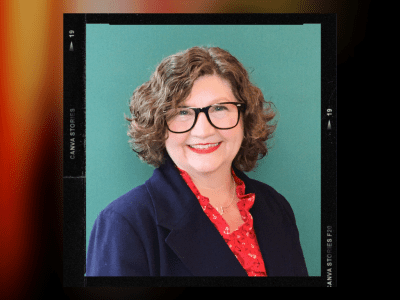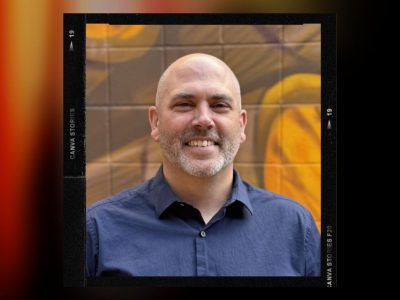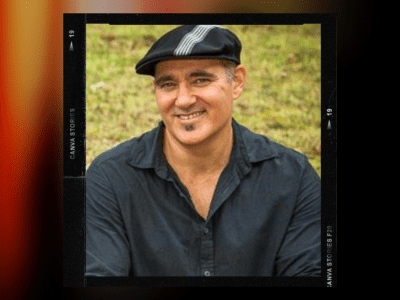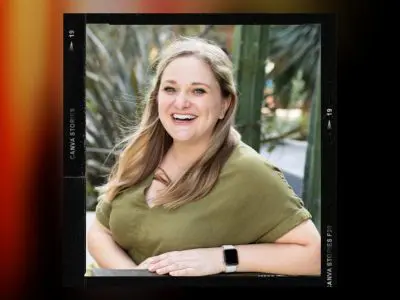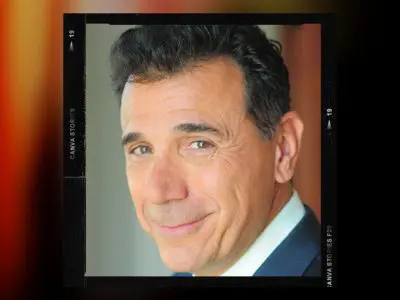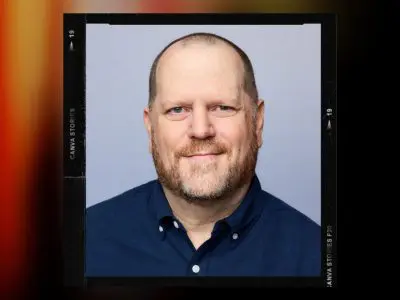Ready for the Future of HR?
w/Emily Karottki & Traci Chernoff
Use the buttons above to listen now.
Transcript - Ready for the Future of HR?
Rich: On this episode of team building saves the world.
Emily: HR is probably one of those few corporate functions that really is a sign of its time. Okay.
Traci: Literally to this day, that’s what my parents think I do. They even my grandmother too. She’s like, I still have no idea what you do.
Emily: I won’t speak specifically to Fooda where we’re kind of killing it, but broadly speaking, our number one challenge is retention.
Traci: Yeah. And we see this a lot, even in, um, women’s empowerment discussions and, and women in business wanting to have the full package
Emily: And you just kind of wish we could fly, be together and have those, you know, team bonding experiences that are really kind of irreplaceable.[00:01:00]
Rich: Hello team. It’s me, your old friend, rich Rininsland the host of team building saves the world, a show where I speak to the leaders and innovators in employee wellness and corporate culture on how it reflects in the world of today. And today we’re discussing the future of human resources with the VP of people
at Fooda, Emily Karottki and the director for employee engagement for Legion technologies and host of the bringing the human back to human resources podcast, Traci Chernoff but first I need to share some love with my supporters at team bonding. If your team is ready to experience teamwork through the power of play
then visit team bonding.com to learn more. Now team join me in welcoming my guests, Emily Karottki and Traci Chernoff. Hi, please. Thank you so much for coming on. That was actually a small group of people. I keep chained up under my desk, their entire job, just to applaud you.
Traci: I hope you’re paying them, uh, a little bit.[00:02:00]
Rich: I, I feed them. Is that enough? I don’t have an HR. So these are things I don’t do. All right. Well, welcome to both of you. Uh, what I’d like to do first is to allow my team to get to know you just a little bit better. So Traci will start off with you. Uh, how did you get started in human resources and, and what was it about that that drew you in?
Traci: Like so many people I fell into HR, a lot of people have this story.
I actually started at target. I was an executive team leader for guest experience, which basically means I was a salaried manager, managing other managers that led, you know, the, the guest facing parts of target. And I was in a huge store, one of the largest in the company in New Jersey. And I had started right out of college.
It was a great leadership role. I had no idea what I wanted to do. And through these you know, the first six months I started to gain this exposure to HR for the first time actually. And I had always been in different leadership roles in college and high [00:03:00] school and, and things like that. And I didn’t realize how closely connected that experience was like growing up to HR in like a retail environment, especially where, you know, you’re in the, I was in the
store. I was like super involved. Like when you work at a big box, like target, you have to know and learn everything. And so after about six to eight months, I was actually promoted to an HR ETL or executive team leader. And that was when the journey started and actually it’s credit to my dad because I was like, trying to decide, do I wanna go to the store manager route or do I wanna go this HR route?
He was like you really like everything about HR, you talk about it all the time. That’s gonna be like the career for you. There’s a career in store management too, but like, go for it. This is what you talk about all the time. And thank goodness I listened well that day. Cause I don’t always, and I followed my dad’s, uh, advice and that was kind of the
started the journey. And after about four years at target, I moved to a [00:04:00] fashion luxury fashion company, and I was an HR business partner there. And then by the time I left there, after about four and a half years, I was a director of HR for north America. So now I’m in a tech company focused on employee engagement and it’s been an amazing journey.
And like you mentioned on my podcast, so HR runs deep over here.
Rich: very nice. What about you, Emily? How deep is HR in your bones?
Emily: Well, Deep. It’s funny. Traci has a similar story to my own. I studied, um, music in college naturally, it’s a fitting, you know, um, segue into HR, but I graduated with a degree from a liberal arts college and I fell into my first job at a fortune 500 company.
You know, I needed. I needed a job. I needed some money. I had a connection to, um, a great company here in Chicago and it was in a depart, it was in compensation and benefits. And I literally didn’t even know what compensation meant. It’s so obvious to [00:05:00] me now, but at the time I think is if that’s pay, like why don’t they just call it pay?
But I started in comp benefit. I had a lot of opportunities at that time. And in that company over the 10 years that I was there, um, to try new things, to take on new roles, my next move after common benefits was leadership development and succession planning. I was assigned to go here and there and everywhere on interesting assignments, strike contingency planning at one of our business units that was under a strike threat, you know, getting new business units off the ground in New York city.
And I really cut my teeth in a lot of different areas while I was there. And the one thing that I was sort of missing after many years, um, and the, the C H R O said to me, he said, you know, he said, we got a lot on your resume. You can do anything you want. But you need global experience the next move you make, make sure it’s global.
Hmm. So I, I moved to management consulting in a internal, um, in an internal HR [00:06:00] role, but at a global management consulting firm. And that gave me the opportunity to do just that and, and support HR in other, in north America, but also in other countries. My role after management consulting was at a financial services company, again in a global capacity leading talent development.
Around that time, I had my first child and was ready to make another move. And this was a few years ago and I thought, you know, I could head up HR, I’ve checked a lot of boxes. I wanna stay in Chicago. Chicago’s got a lot of great tech startup opportunities that, that would afford me. You know, this, I could go smaller and really get my hands dirty in, in every way and be a real partner to the executive team.
And that’s exactly what I did at Fooda.
Rich: Very good. But let’s actually talk now. Uh, Emily, I’m gonna ask you to continue. How would you define HR? Because for a lot of folks out there, I’m sure it all has a different definit. I mean, I’m also, I I’m a gig worker. I’m, I’m a performer and entertainer through [00:07:00] most of my life, which means that I have had to have the corporate job that pays for my career choices.
Uh, so my experience with HR is, oh, you need this paperwork signed, bring it to HR. That’s really all that I knew.
Emily: So when we’re yes, your, your, your personnel department needs you to sign some forms.
Rich: Exactly, exactly. I mean, I was looking up in the, whether it was a hundred years ago when it was the worker’s welfare association, then you’re talking with the labor management movement in the 1920s to personnel departments in the sixties and seventies, then HR.
That I’m. Yeah. What is it?
Emily: You know, HR, just, I’m just thinking this for the first time, but, but HR is probably one of those few corporate functions that really is a sign of its time. Okay. That, you know, it, because it is evolved and really even like what’s in a name, like it used to be called. I mean when I was growing up personnel.
Yeah. Growing up, I mean, as a kid then it was human resources and then [00:08:00] human capital management was sort of the buzz term for a while. Now, now we’re talking about people, people operations, my title right is vice president of people. And I usually tell people that means I’m the head of HR because they don’t always necessarily connect to those dots.
But it’s also just a sign of, of how the culturally we’ve evolved, but here’s how I would define HR. Mm-hmm um, and maybe I’ll start with how I, I don’t define it because I know Traci gets this all the time too, which is the minute people know that you’re in human resources, they say, oh, so you hire and fire people.
and I know, I think earlier in my career, I took that a little more seriously and I, my answer’s always, no , I don’t do that. Um, my role and I actually genuinely believe this, and I think this is why this role is well suited for me. I genuinely feel my calling in this role is to enable individuals to have the best, most rewarding career.
Where we are that they can, that when they leave and [00:09:00] everybody leaves eventually mm-hmm that they have eked out the most value from this experience, from this corporate experience. That’s what I want. To do. That’s what I want to help individuals do is just have the best time have the best career be developed.
Do the things that, that are interesting to them. If they’re not a good fit, let’s find a better fit here elsewhere. And let’s just make sure you’re getting the most value out of this experience. Um, and you have the most rewarding, fulfilling career that you can. That’s important to me. I think in my role now also as a partner to
leadership and as an active member of leadership, right? My role is also in HR, in people to help get things done. If something needs to occur, if some business initiative needs to be done, how can we do that in a way that treats our people fairly with. And of course it’s legal and checks all those boxes, [00:10:00] but I wanna be a facilitator and not a Mr. No. Um, can’t do that because of these reasons. Sure. Um, it’s really like, okay. That’s important to the business. Having a successful business is important to our people. And so how can we get that done in the right way?
Rich: Okay. Now, Traci, you are, of course you are listed as the director of employee engagement.
So, yes. How would you say that, that rounds out into the HR umbrella?
Traci: I have to first say that when Emily mentioned, you know, that it’s like the reaction is, are you hire and fire literally to this day? That’s what my parents think. I do. They enjoy my grandmother too. She’s like, I still have no idea what you do.
and I’m like, you know what I, I tell, I tell you, it’s just not my fault. If you don’t understand it,
Rich: you tell people why they can’t have dental.
Traci: Right. we’re, we’re trying, we’re trying to help with the understanding. No, but I mean, the, what I think is, so I important to think about too with HR is that, so often [00:11:00] we are this, we are a function of the business, a piece of the business, not separate from it.
Right, right. Um, that is often, um, dehumanized. And this is really where I try with, with my podcast too, to like bring the human back. Yeah. We are talking about human beings that run a function of the business. Just like finance, just like marketing, just like operations. Right. Mm-hmm and yet. The flack that we get, there are so many more stigmas, and I’m not saying that it’s for an improper reason, there are definitely stigmas for certain reasons.
And it’s part of our evolution. And I think it’s part of the reason why we have become this people, operations, uh, you know, function. And I love that analogy that you made Emily around. Like it’s a sign of the times. I totally agree. And when I think about my role to really specifically answer your question here, You know, this is the first time that I’m not in like a director business partner specific like generalist type of role.
That’s overseeing [00:12:00] all elements of, you know, HR and the function. Yeah. But I have to tell you, I’m the kind of person that colors outside of the lines anyway. So it’s not gotten away from me. I always still touch all the parts of HR. Just it’s natural in my personality. But, um, really when we think about HR and I can only underpin what Emily’s already shared.
We are talking about what human beings in an organization are taking away. Are we putting them back out into the universe as better people, more equipped, more productive, more knowledgeable, or are we sending them out with having a really terrible experience? And it’s not necessarily our doing all the time.
Right. I always say that HR is like the original influencer. So often we are the ones that don’t necessarily manage. Many, if any individuals, but we have to influence an entire organization to change, to transform, to adopt new things, to think differently. I mean, we, it, it’s part of the reason why there can be stigmas around being in [00:13:00] HR, because there’s a perception that we’re playing both sides of the fence.
When in reality, our job is to take a step back, look objectively at what the situation is whatever it is, whether it’s, you know, succession planning, talent development, or even, um, planning compensation levels, for example, like all of that has to be done with a, uh, an objective approach. One that’s thinking about all of these moving parts.
While also, and, and that’s really focused on the business mm-hmm , but while also looking at the employee and how we can get them to be their best selves. So that’s how I see my role. I, I really see it as just an extension of what I’ve always done with a more specific title. And I get to do some fun things too, like put on some programs, which, which is kind of nice, cuz I haven’t necessarily been able to do that.
You know, we’re, we’re a bit of a smaller team, so we all kind of have to gear up and support one another. Um, and we all kind of color outside of the lines, but really thinking about HR. I think the, the essence of HR is that it a good HR professional is going to be [00:14:00] someone that can comfortably operate in the gray area by building really trusting strong relationships while also being a really strong business partner and with strong business.
Rich: Cause when I was coming up with, when we were discussing this episode, Anna and I, my producer, the first question that came to my mind, and I didn’t wanna ask it because it always sounded, it sounded cynical in my own head. Is, does HR work for the company and sort of in a way of just keeping their employees moving in the direction the company wants to go, or does HR work for the employees, keeping their benefits, moving along in the company over what the company might be considering as their main direction that is.
Emily: Rich. I’m sorry that I was just didn’t mean to cut you off is a chicken and egg. That is a chicken and egg question. Okay. Because it’s, because I think the answer is both. Mm-hmm you, you, our role is to help lead a successful company
Traci: mm-hmm
Emily: and make [00:15:00] business decisions and get everyone marching in the same direction and clarify priorities and vision and set goals and align them and make sure people understand them.
So they’re engaged and those are all things that are really in the best interests of the company. But. What’s a company without its team. Sure. And our number one challenge right now, broadly speaking, I won’t speak specifically to Fooda where we’re kind of killing it, but broadly speaking, our number one challenge is retention.
Yeah. And you can’t do one without the other, and if you wanna retain people right there, there’s a lot of. Talk about, you know, why do people leave? Well, it’s they leave because of managers they leave because you know, of, um, uncertainty, they leave because of, um, opportunity and the latest. And I just heard this today, the Microsoft, um, workforce report just out.
So the number one reason today that employees are leaving is for professional development [00:16:00] opportunities, either lack of where they are or to gain more, you know, the, on the, making a move. So I think, I think it’s both. And I can just, I can just think back to so many conversations with company leaders here at Fooda or where it’s like, my role in those moments is representing
both and making sure that, Hey, we’re talking about the business. We can’t lose sight of our people and we’re always talking about the people it’s like, yeah. But why are we really doing this? It’s it’s for the business. So that’s a great question. I don’t think it’s a cynical one. I think it’s a, a question of on balancing those needs.
Traci: I agree. And you know, the HR is one of those unique functions of the business, where the people that are like us and HR who are focused on, you know, operating in that gray are also employees. So we don’t, we, we want the benefits to benefit us too. And this is where it’s like, you know, when, when someone, you know, sometimes people will make a comment like, oh, I thought you were going to be like one of those HR [00:17:00] people.
It’s like, you know, that, I don’t know if that’s a compliment or if I’m just hurt, you know, cuz it’s like, why did you think I was gonna be like that?
Emily: Well, you know, The Office did not do HR any favors.
There’s a lot of, you know, just negative stereotypes about, um, the kind of people that work in HR. I get the same thing, Traci like, oh, you’re not
uncool.
Traci: Yeah. I didn’t think you were gonna be at the, at the holiday party until four in the morning. I’m sorry. Yeah. Why did you think I wasn’t going to be like, I’m offended that you didn’t think I was cool enough to be here with you at this time.
Rich: Well, ladies, you’re both like, this is, you’re both very cool just for coming, on the show today.
Thank you. Um, but I do need to take a quick step away because of course I need to tell my team out there about a company I am very proud to be a part of. Team bonding team bonding was founded over 20 years ago. With one simple question. How can employees have a great time while fostering strong, authentic bonds between [00:18:00] people who work together?
They’ve created a catalog of innovative events using the power of play as a learning tool and tapping into the correlation of work and play. From scavenger hunts to jeopardy and so much more the team bonding of activities. Be it live virtual or hybrid, maximize the impact of team building with an accent on fun.
So visit team bonding.com to schedule your event. Now, team bonding, when you want seriously fun results. And we are back with Traci and Emily. So let’s keep going here, Traci as we all know what HR may have been like about 10 years ago, everything changed within the last couple of years. Not only did we have a pandemic where suddenly your job became talking to your personnel as little squares aligned neatly across your computer.
But we also came across what I’m through many of the articles I’ve been reading in preparation for this show where the biggest crisis HR [00:19:00] had to had to handle the great resignation. Let’s talk about that. What did you face and how do you handle it?
Traci: To be confirmed because I think that we are still amidst the great resignation, just in a different way.
It’s evolved in so many ways. So to set the stage here a little bit, I was still working in retail. I was out of stores. Um, when I left target, I was no longer in stores, but, um, I was working for a luxury fashion retailer on the corporate side and supporting directly supporting, um, the stores, the retail population.
So it, we, it hit us in a way that I, I mean, I’ve, I don’t think I’ll ever have. I hope I will never have an experience like that again, where we are closing stores and managing a health crisis and everything in between. I mean, it was the, probably the greatest challenge and learning opportunity of my career, but.
The labor market became so intense. And I feel, I think that the great resignation there was, there were things [00:20:00] about the labor market that were just bound to come to a catalyst. Okay. During that time, you know, in terms of even fair pay benefits, access to, to maternity and paternity leaves that are, you know, more equitable, even if you think about people wanting flexibility within their lives.
Um, this is kind of tapping into what we do at my current company Legion technologies and what we provide, but really thinking about some of the strains on the labor market before the pandemic mm-hmm, , everything just kind of came to a head. And so when I think about that time, I think it just shined a light
on what already existed. People were already frustrated that they weren’t getting the access to wages that they wanted specifically thinking about these frontline employees, especially who make up 58% of working eligible Americans, actually 58% working eligible americans are earning an income on an hourly basis.
So when you think about that percentage, it’s the majority of Americans [00:21:00] and they were, they continue to be greatly impacted by minimum wage laws and, and compliance laws and things like that. So again, I think it all came to a head, but what I think is so interesting is that. The power dynamic shifted. So we had, you know, employers like, eh, we’re gonna offer you this.
And you know, you have to work nights, nights, holidays, weekends, especially in retail. And you’re lucky to be here. and, uh, everything, everything changed and people are like, you’re lucky to have me. And so this power dynamic shift. Required and necessitated businesses to be like, oh no, we have to retain these people.
And I mean, everyone, we know what the great resignation was. Like people were leaving left and right in the droves because COVID not only like made us think differently about what we wanted out of li out of our lives. It. Called into a question, even like mortality. Right, right. We’re thinking about life as we know it.
And so now you have people who are already annoyed at their employers, potentially just like, I’m not dealing with this and you’re not giving me what, what, [00:22:00] what I want. And so now employers are still in this shift. They’re still trying to figure out, okay, well, how do we solve this problem? So thinking about where we are today, The great resignation has definitely slowed, but we’re still seeing, especially as gen Z enters the workforce.
Yeah. This like almost gig, like sentiment, people want ultimate flexibility. They want like maximum whatever they need maximum autonomy to do that. That’s at least the impression that I get from the research that I’ve done into why it still exists, that you know, this labor market challenge exists today.
And then on top of that, we also went through a social justice crisis, not even a crisis, but an awakening. Right? Right. So you have all of these things coming to a head. It was really challenging. And I think HR specifically has made some changes to ACC. Needing to support people better. We’re seeing D E and I roles.
We’re seeing culture, roles, employee engagement, roles, people, operations [00:23:00] only, you know, like, so those things, everything has changed as a result of all of these major life moments happening for everyone around the world.
Rich: Yeah. On the podcast we’ve spent so many episodes. Talking about not only the great resignation, but with it, the great migration as people are moving away from the cities, trying to go back to their families to help take care of one another.
Mm-hmm plus you’ve got your multi-generational workforce going on here with millennials, still making up the largest percentage, but not necessarily the most vocal of the percentages of it. I mean, I made the joke earlier, uh, when I was talking about how, you know, your job in HRS. Tell me why I can’t have dental again, Emily let’s let me throw this to you.
What kind of benefits are people looking for now when they’re coming into work and how has that changed?
Emily: I think, um, if I can answer your question more broadly, just what are they looking for? Okay. In general, on the benefit side, I think it, it goes, and this is sort of not post [00:24:00] pandemic. This is sort of really pre pandemic too, that we were seeing this and to Traci’s point.
You wanna join an organization that checks all the sort of basic boxes, right? Flexibility was one of them, although that looked a lot different two and a half years ago. Yeah. But there’s also an expectation that you care about my wellness to the extent that there are wellness benefits, mm-hmm and community benefits.
You know, Traci mentioned that there were some social reckoning, um, that occurred over the last couple years. I think. What does your company stand for? Right. I think is. Part of that overall package, especially among the millennials, joiner is signing up for yeah. When they say yes to your company. So I think that those are important.
And, and as Traci said, they’re kind of in the driver’s seat and they’ve really helped inform those of us who spearhead those social responses and to respond and to react and, and to listen wellness, to be very honest. And this is maybe an [00:25:00] unpopular view, but I was never a fan of wellness programs before I, to me, they were always tied with health insurance.
Yes. And you could get money back on your premiums, but it seemed, they were, they seem kind of like a gimmick and that you’re just trying to get a bunch of data, biometric data on me as a person. So I don’t think I’m gonna sign up for this. Um, and so I worked at companies that had those, but. I was pretty vocal, even in my, my role that I, I don’t think that these really serve our employees.
No data suggested that they are helpful. And I’m not really sure why we’re pushing these wellness when we really are just trying to decrease our insurance costs. Wellness means something totally different now. And I’d love to hear Traci’s thoughts on this too, but, but from a benefit perspective, just, you know, again, more broadly.
People wanna know that they’re working at a place that cares for them. Right? One of the things that we just rolled out at Fooda are wellness days. Now this is not a new concept. We’re getting on the [00:26:00] bandwagon here, but I think it’s really, it sends a great message to our team that like, we understand that like, yeah, there’s, there’s PTO, there’s vacation and travel and you should do those things, but sometimes you just needed day and we’ve needed days, certainly in the last 24 months.
We all have. And so we we’ve instituted wellness days and here’s what we mean by that. Here’s how we want you to use ’em and we want you to use ’em and we kind of say like, Hey, you haven’t taken your wellness day yet, work with your manager, get that scheduled because we really think it’s important for you to not be here for a minute and to truly unplug and to do whatever it is that you need to do to, um, not burn out, to do things that are important to you to take care of home business, whatever those kinds.
Benefits and you can call him that I think are one of the ways that the world in our world has evolved pretty fast over the last couple of years.
Traci: Hmm. Yeah. I, I agree. It’s interesting. When you started off, you were talking about how all of this has been so tied to benefits and that people have this basic [00:27:00] expectation or expectation for basic needs.
Right? Right. So I see like so many things that used to call benefits as just standards and expectations. And now it’s like, okay, well, what are, what’s the, the new frontier for a benefit for tomorrow? Like what is really, truly going to be a benefit? And I love that example of wellness days, you know, from a wellness perspective, I see it as physical, mental, and emotional.
So physical wellness is like, how are you giving someone the opportunity to go for a walk during the day? Like how do we make sure that people aren’t back to back sitting on zoom all day, every day? Maybe even beyond that, how are we getting people out if, whether it’s team building or a physical movement challenge or something like that?
Right. Physical, emotional to me is like psychological safety. It might even be mental too, a crossover between emotional mental, like how are we creating a, a safe environment for people. And then also that opportunity for them to share their ideas to be themselves. I always say. Um, pretty probably every day, this might become my new mantra.
I might [00:28:00] have to get a shirt or something where it’s like, you, you are not a different person between work and home. You are just one person. So I, I’m not Traci at work and Traci at home, if I can’t be myself, then what am I doing here? And so we have to give people that room to be themselves and to be comfortable being themselves.
And I realized too, it’s really difficult if you’re working, like I work fully remotely, we don’t even have an office. And so you can come. And you don’t know anyone. How do you get someone to see who you are? And it’s through? I think all of these corporate programs like saying, we want you to be who you are.
We want you to take wellness days. We’re giving you time to, you know, give back to yourself through a reimbursement that can go toward a workout class, right? Something like that. And to kind of, uh, close out this idea of physical, emotional, mental, I think the mental piece is, is also this, like, I don’t wanna say it’s a trend, but I, I do.
Recognizing the shift pre pandemic to where we are now, people want more [00:29:00] separation. They don’t, I don’t think that people want to be like our, you know, like past generations, let’s say that we’re just working, working, working, working, working constantly, right. Where, you know, your, your parents are working.
Maybe you’re not really hanging out with them much. And, and I think that the pandemic really did turn this on its head, and this is just a reflection of what people want out of life. And they want to have really. Full careers. And they also want to have really successful home lives. And we see this a lot, even in, um, women’s empowerment discussions and, and women in business wanting to have the full package, to be a mom or to be a caregiver or whatever that might look like for them.
And to be at the head of their department or running, you know, being a CEO and you know, it, it you’d think that it wouldn’t come up in 2022, but it comes up a lot because of access to leaves and different things like that, that can make it challenging for a woman in business sometimes to take that time or feel like they can take that time and continue to, to climb the [00:30:00] ladder.
So to me again, it’s physical, emotional, mental, and creating that space for all of those things to happen.
Rich: How do you as HR reps. Guarantee that you can give somebody who’s coming on board, even access to all of these things, but still remain fiscally responsible because you know, the CEOs and the CFOs, they don’t wanna give that much back.
They’d rather give alternatives or, or what have you.
Emily: Yeah, the. They, I say a lot to my managers and leaders, as we’re, as we’re, you know, working through coaching situations or trying to, you know, sell the company to somebody we really, really wanna get on board or retain someone that we think is awesome.
There are, are so many things. And in fact, probably the most important things that you can do for people on your team that cost nothing. It just doesn’t have to cost money. So for example, I mentioned wellness days at Fooda. Yeah. We already had unlimited PTO. It was unlimited. So all we said is we’re just gonna take a
Rich: day for those, not in the know.
Can you [00:31:00] define PTO for me?
Emily: oh, I’m sorry. Yes. Um, so we have unlimited paid time off. Thank you. It’s sort of a use what you need, um, vacation policy and our issue is not that people take too much of it it’s that they don’t take enough of it. Mm. And so, and, and that’s not unique to Fooda. That’s sort of unique to this.
Um, it, it looks really good on paper and we recognize that but it’s not always very good in, in implementation because people don’t feel like they can take that time. They’re not entitled to that time in a way that had, they accrued it, they would’ve earned it and they could use it. Right. Um, and so one of the things that we do at our companies encourage people to take time off.
So we carved out a little day and said, look, this is also something that we think is important. And we know you have, you’ve told us it’s important to you. Mm-hmm so that’s a wellness day, but did it cost us any more? I mean, I don’t let finance hear me say this, but I don’t think so. I think it’s all part of this unlimited, um, this unlimited pay time off package, but, but more than just that, which [00:32:00] you actually could tie dollars to what employees want is usually not often not compensation and it’s often not a new paid benefit.
Right. They want opportunities. They want to know. Where they’re going to wanna have career discussions. They want increased scope of authority. They want new challenges. They want exposure to senior leadership. They want these things that don’t cost any money. What they require is a plan. They, they do cost time.
Mm-hmm , you know, time for, uh, their leader. Yeah. And leaders of the company to, to be invested and to have conversations about. Hey, we think Traci’s great. Here’s what she said is important to us. We’ve had these conversations with her, so we are going to make sure that over the next four to six months, she gets a, B and C, because that will retain her.
And that saves money mm-hmm . So I think there’s so much that we have at our [00:33:00] fingertips. That is really nothing that ever needs to be on a general ledger.
Traci: I totally agree with everything you just said. And I will also add, whenever someone says that the best response is to think about, you know, just ask them to think about their best experience in a store, whether it’s like a trader Joe’s or maybe target, you have a great experience, right?
The, the, the employees there, we helping you out. They asked you how your day was. They were giving you great service. They’re not giving you great service and letting you spend more money because they’re miserable at work. They’re giving you great service and great experience because they’re happy at work. So when you keep your employees happy, when you keep them engaged, when you hear what they need, you ask for their feedback and you actually act on that feedback and you act on, on that in, uh, you know, insight, then you keep them happy.
You keep them, uh, retained. You give them that access, that opportunity. And that in turns, it makes you not only it saves you money [00:34:00] because the cost of attrition is astronomical. Yeah, but it also increases and generates money. Every business is reliant on some stream of revenue, right. You’re relying on a customer to spend money at some level, whether it’s a grocery store or a SA you know, solution software company.
Right. So the, the better. You are, uh, taking care of your employees, the better they will take care of your customers. And that is a sure fire way to make money. And I’ve always said to my leaders in my retail career, especially where it was like really, probably the most impactful when I. I had a team at that time.
And that was that if you focus on your employees before anything else, you’ll never need to worry about a business metric because the business metrics will follow. I guarantee you, I, I would put money on this because the, if you are truly focused on building up your team, giving them the opportunities to develop, to learn, to grow, giving them an environment where they feel safe, but [00:35:00] also challenged and, and thought about,
they’re everything is just going to, to grow around it and blossom around them.
Rich: So from the sounds of it, it seems to just all boil down to recognition. Is that what you’d agree? Like they’re they just wanna know that their efforts are amounting to something and being seen.
Traci: I think it’s like it’s. It’s recognition, but branched off of communication, transparency, mm-hmm, clarity for what it’s all affecting.
Like how does it, how does my job impact the global organization or the organization that I’m a part of? And also are you seeing me. Like, if I’m putting in 40 plus hours of work, do you see it? Do you care about it? Do you actually appreciate it? Or, you know, if you don’t tell me to do something different, don’t don’t let me waste my time.
Rich: all right, Emily, let me ask you this. What’s the future of HR going to look like? Like you said, there’s been a huge change that it all happened very recently, but it is a [00:36:00] constantly evolving part of an organization. So what do we see? Let’s yeah, let’s look like five, 10 years into the future.
Emily: I think we’re on the path.
I think five, 10 years from the future, we’re gonna see that we are better at automating things, you know, that are big time sucks for, for individual, whatever, in whatever role they’re in. But also particularly in HR, we’ve been on a path for a long time, my whole career improving, um, you know, HR technology, improving our use of data so that those aren’t like new concepts, but we have come a long way.
We just still have a really long way to go. I. We’ve talked a bit today about the partnership that HR has with the business and helping make important business decisions. I think that is a sign that we continue, for example, to move away from the sort of tried and true, you know, expense control and efficiencies.
And. [00:37:00] Of our human capital mm-hmm and we’re really more interested in as Traci just said, like, how does my work impact the bigger picture and seeing clearly the direct correlation between your work and revenue and profits and productivity. I think that transparency and hRS role in providing that transparency and communicating.
Um, those things will continue to be, you know, what we work on over the next, you know, phase of our, of our profession. I think. Remote work, you know, I mean, talk about a seismic shift that, um, and I hear all the time people say, oh, we’re never going back to the way it was. And, and I hope we don’t quite frankly, you know, personally because, um, you know, again, as Traci said, like whatever benefits, our employees also benefits us.
And, and I think personally, um, I could speak for myself that it’s been a real gift, a real silver lining in the middle of the pandemic to find a new way to effectively work, but we can do [00:38:00] better. I think doing zoom calls and having the, sort of the, you know, boxes of people, as you mentioned, rich, you know, on our screen doing training virtual onboardings in that environment is really hard.
Yeah. And you just kind of wish we could fly be together and have those, you know, team bonding experiences that are really kind of irreplaceable. So I think, you know, the future of HR, um, ha in my view, really needs to include. How do we get back some of that, that we were sort of forced to abandon abruptly, but there are real benefits to it.
So I think, um, we’ll continue to balance how do we provide maximum flexibility work when it makes sense for you to work, we’ll measure your productivity, not your hours. Um, but how do we also be together and bond and create a culture, a consistent culture across you know, multiple locations, especially, you know, if you’re in multiple cities or [00:39:00] in multiple countries, I, I think those things will continue to be challenging and technology will help enable our ability to do that.
But we also might have to get back to basics and find ways to, you know, be together physically.
Rich: Traci, anything you wanna add?
Traci: I think that, uh, we’ve seen this a little bit, that HR will continue to be a critical investment for an organization. I think we, when I say, I think we see this a little bit because of the shift from the pandemic.
Yeah. Needing to have someone managing employee health, needing someone to focus on D E and I, all of the, that is a clear example of where there’s a need for investment. And actually I think it was at the end of 2021, there was a survey done by the bureau of labor statistics that like the number of job openings, you know, of all of them, the, the job openings that were the most expansive were in the HR function and industry.
So of all of the jobs created, not, not necessarily ones that were being filled, but new jobs where [00:40:00] HR jobs. And I think that that is an example of what is to come. And I can only hope that organizations will see that the HR team, the function has to be the first order of business, not the last, because sometimes you see this, even in like, you know, new businesses, small businesses, startups, that the thought of how we’re taking care of people is last.
And we want, you know, we want the culture to be there. We want all of that. Like, you know, when I think about a, you know, one person company they want, they want whoever they bring on to have an amazing experience. Right. Which is great. But if you don’t outsource that because we can’t be experts at everything.
You don’t have someone really focusing on how you scale that. Or even if you are a huge industry, a huge organization, how you continue to scale that, you know, you’re gonna miss something along the way. So I hope that we con continue to see that. And then on the other side of things, I can only say ditto to what Emily said with being in person, be working remotely.
I love it. I never wanna go back to the office again. but I would love to [00:41:00] meet. Colleagues in person. And I think that that’s where it’s like, you know, you get rid of an office, you save all of that capital. How do we reinvest that into annual or biannual, all hands or team building events that are a week long somewhere.
Right.
Rich: I was about to say, I think you guys just need good team building events, which like I
Traci: could tell you how
Rich: yeah. Ladies. Thank you so very much. This was a great conversation that we could just keep going on and on and on and on about, but I know like Emily has to go so
Emily: bring yourself. Thank you.
Rich: Yes.
Thank you for having us. I would love to have you both on so we can delve a little more deeply into specifics about the topic, but first let me just say thank you again to Traci and Emily. Uh, Traci let’s start with you. I just say you are the host of your own podcast. Where can my team find out more about.
Traci: you can follow me on Instagram, LinkedIn, anywhere with the handle, HR Traci that’s HR T R a C I. So any backwards slash just add HR Traci, and you’ll find me. I also have a website, HR traci.com [00:42:00] you can connect with me anywhere. I appreciate it very much.
Rich: And Emily, how about you?
Emily: Well, you can find me on LinkedIn, Emily Karottki
I’m the only one I promise with that name. so it should be easy to find and I’d love to connect and, and continue the conversation. I’m obviously passionate about the topic.
Rich: Fantastic ladies. Thank you again, but now. I hope you guys are ready. I was telling you about this before, but guess what? It’s time for my speed.
Round speed. Round speed.
It’s all about the genius. All right, ladies. Here’s how this is going to work. I am going be playing some music. Exactly 60 seconds in length. In that time, I’m gonna ask you a series of completely innocuous questions. I will ask either one of you specifically, or if I just ask a question with no name attached to it, the first one to answer gets the answer in your objective.
Working together is try to answer as many questions as possible within that 60 [00:43:00] seconds. If you are feeling competitive at all, the number to beat is 14. Okay. Yeah. Gosh. It’s it’s a lot. It’s. So if your ladies are ready, as soon as you hear the music, I’ll ask the first question. And away we go. Emily, tell me the best thing about you.
Emily: Um, I play the ukulele
Rich: Traci, on a scale of one to 10. How strict were your parents?
Traci: 8
Rich: Emily. Who’s the best teacher you’ve ever had?
Emily: Uh, Mrs. Strick field. She taught me everything I know about writing.
Rich: Traci, do you have any pets?
Traci: Yes. Two dogs straight Dradle and peanut.
Rich: Emily. Do you have any children?
Emily: I have 3, 7, 4, and one. They’re amazing.
Rich: Emily, which one’s your favorite?
Emily: Oh, uh, pass
Rich: Uh, Traci, if your pet could actually speak with you, what would you like them to say?
Traci: I love you.
Rich: Aw, nice. Uh, how would you describe your [00:44:00] best friend?
Traci: Fun, reliable.
Rich: What historical figure would you like to meet
Traci: JFK. And MLK.
Rich: What’s your favorite ice cream?
Emily: Mint favorite ice cream.
Yep. Mint chocolate chip.
Rich: I’ll give it to you. I’ll give it to you because mine is also min chocolate chip.
Traci: Uh, it’s the best. Ooh, I do love mint chocolate chip.
Rich: Yeah. Yeah. But what’s your favorite, Traci, if it’s not your chocolate. Okay. Simple.
Traci: It’s great. Classic. I, yeah, I’m a purist, you know, I just love it.
Can’t go wrong with chocolate.
Rich: Well, ladies, you got 10.
Traci: Oh, come on. Give us another round.
Rich: Next time. You’re on. You’ll get another round. Hey, that’s good. Or you know what, Traci invite me on your podcast while I’ll play, whatever game you wanna play.
Traci: I know we could do that.
Emily: If I didn’t have so many kids. It wouldn’t have gone faster.
So. That that took a few extra seconds.
Rich: uh, once again, ladies, thank you so very much my team out there, please give a huge round of [00:45:00] applause to Traci Chernoff and Emily Karottki
thank you again, ladies, I look forward to hearing from you and seeing where you go and, and meeting up with you again in the future, but as for you out there, my team that’s it. We put together another episode of team building saves the world. You’ve enjoyed this episode, whether you’re new to the podcast or an old fan of the show, please be sure to share it with everyone
you know, whether they’re a coworker, friend or family, it helps us to share all of this vital information. You can find out all about us, including all past episodes@teambonding.com slash podcast. You can also find this wherever you find your favorite podcast, Google, apple, Spotify, wherever you listen, we will be there.
And if we’re not there. Go to all the social medias, find us at team bond podcast. Leave us a message. Tell me where we’re not, because I want to be where you are listening. Plus while you’re on the social medias. Hey, do me a favor, send us a like, you know, share all the information. Tell us what you liked about the show.
If [00:46:00] you want to hear a future topic on the episode or future episode for the podcast, let us know that too. I want to. From you, but most importantly, as we’ve learned on the podcast today, remember your HR people well, they’re trying to take very good care of you and I want you to take good care of them.
But my friends, before we say our final farewells for this episode of team building saves the world, please never forget that if you are within the sound of my voice, you are on my team now and I am forever gonna be on yours. So long team. I’ll see you next time.
It’s been said that you learn more about a person in an hour of play than in a year of conversation. So why not put your coworkers to play with the help of the team at team bonding team bonding was founded over 20 years ago with one simple question. How can employees have a [00:47:00] great time while fostering strong, authentic bonds between people who work together?
Their catalog of innovative events include scavenger hunts, jeopardy, and much more. Each activity, whether live, virtual or hybrid maximizes the impact of team building with an accent on fun. Visit team bonding.com to schedule your event now, team bonding. When you want seriously
fun results.
August 16, 2022
Who comes first: The business or the employees?
Times have changed, and human resources have changed with it. Discover the future of HR as host Rich Rininsland dives into the stigmas surrounding human resources, new strategies, and positions.
In this episode, Rich chats with Emily Karottki, VP of People at Fooda, and Traci Chernoff, Director of Employee Engagement at Legion Technologies about what we can expect moving forward in the future of HR.
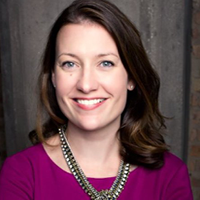
Prior to Fooda, Emily served as the Global Director for Talent Management for the financial services firm, the Warranty Group, and as the Americas HR Manager at Kearney, a global management consulting firm. Emily spent the first ten years of her career at Tribune Company, a Fortune 500 media company, in a series of HR roles. She holds a BA from Kenyon College. She is currently Board Vice President for Ronald Knox Montessori School in Wilmette, Illinois. She lives in Wilmette with her husband, Sal, and three children.
“What employees want is usually often not compensation and it’s often not a new paid benefit. Right. They want opportunities. Probably the most important things that you can do for people on your team that cost nothing. It just doesn’t have to cost money.” – Emily

“The essence of HR is that a good HR professional is going to be someone that can comfortably operate in the gray area by building really trusting strong relationships while also being a really strong business partner with strong business.” – Traci
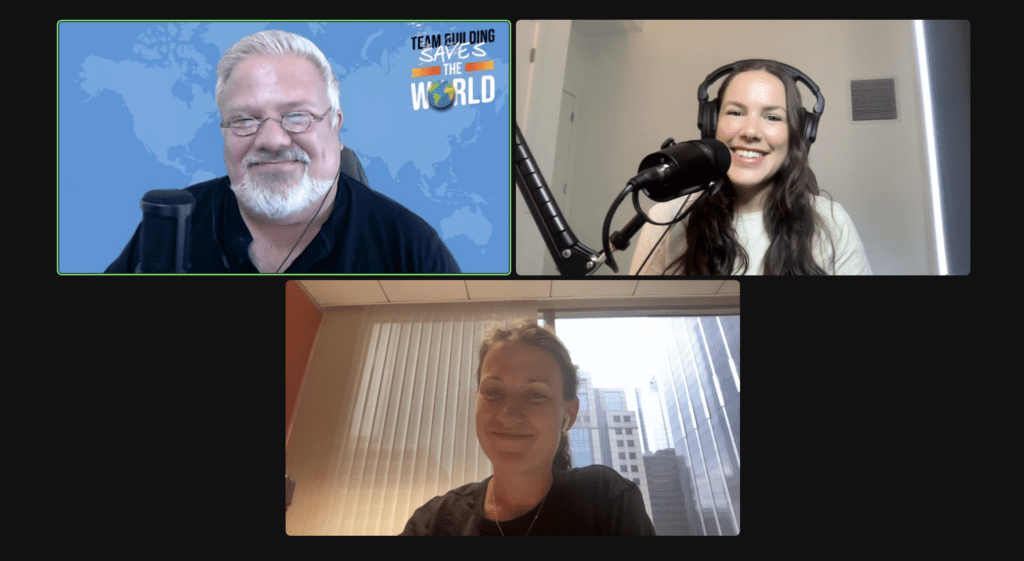
Get more human resources and leadership advice.
Less drama? Greater teamwork and job satisfaction? TeamBonding is here to help you build a stronger and happier team. Subscribe to get our team building podcast and thought leadership blogs sent straight to your inbox.





